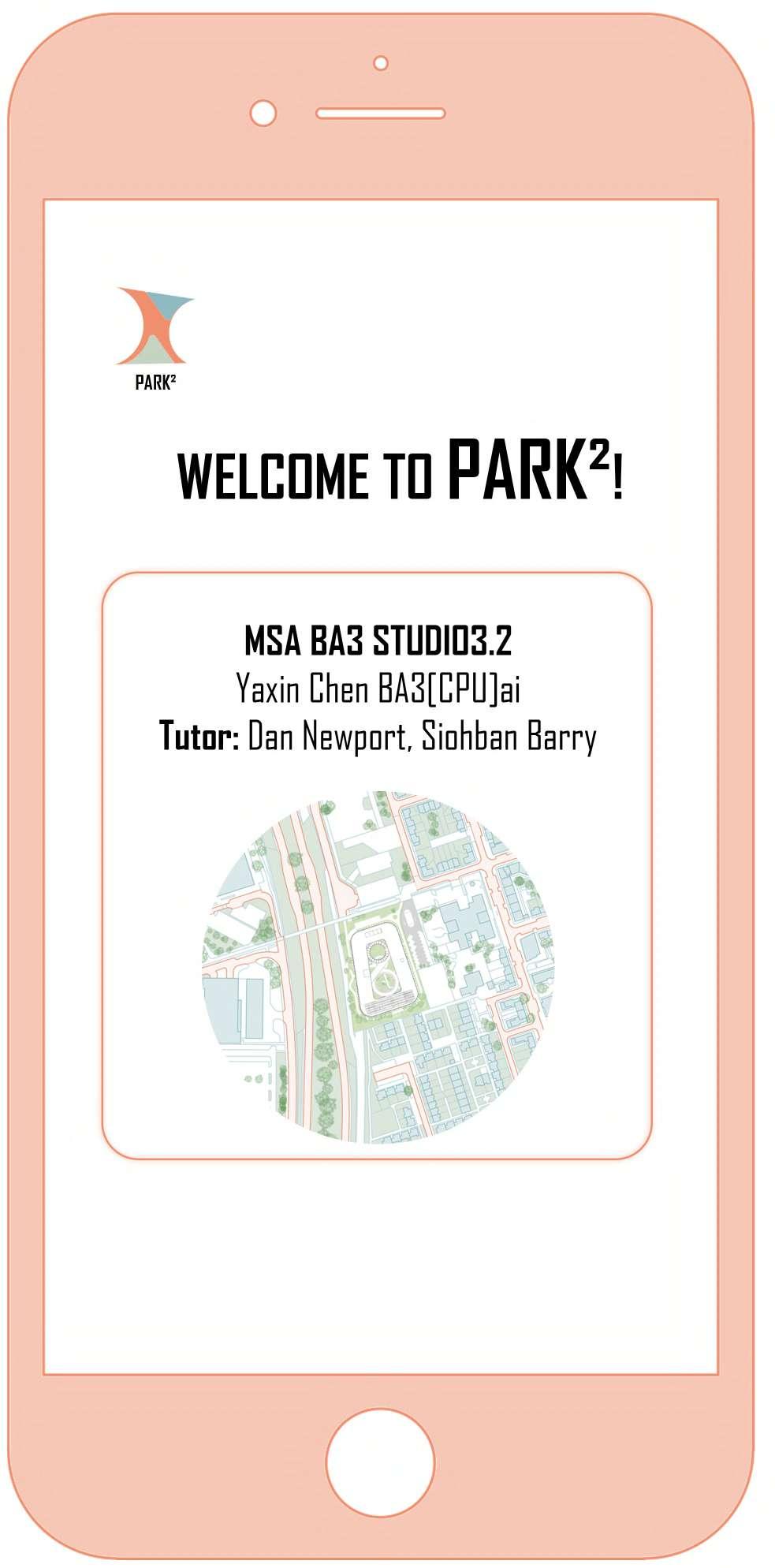

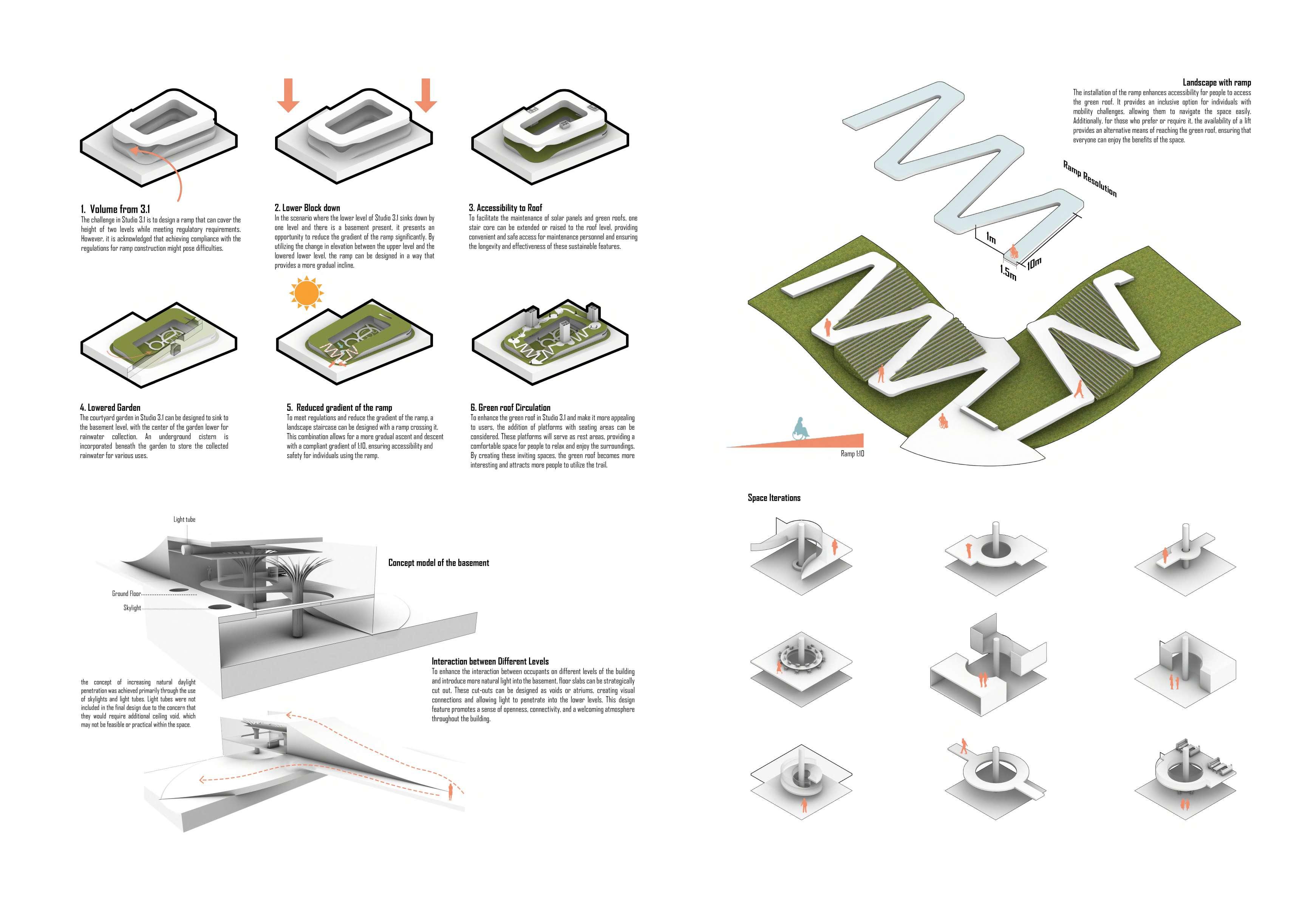
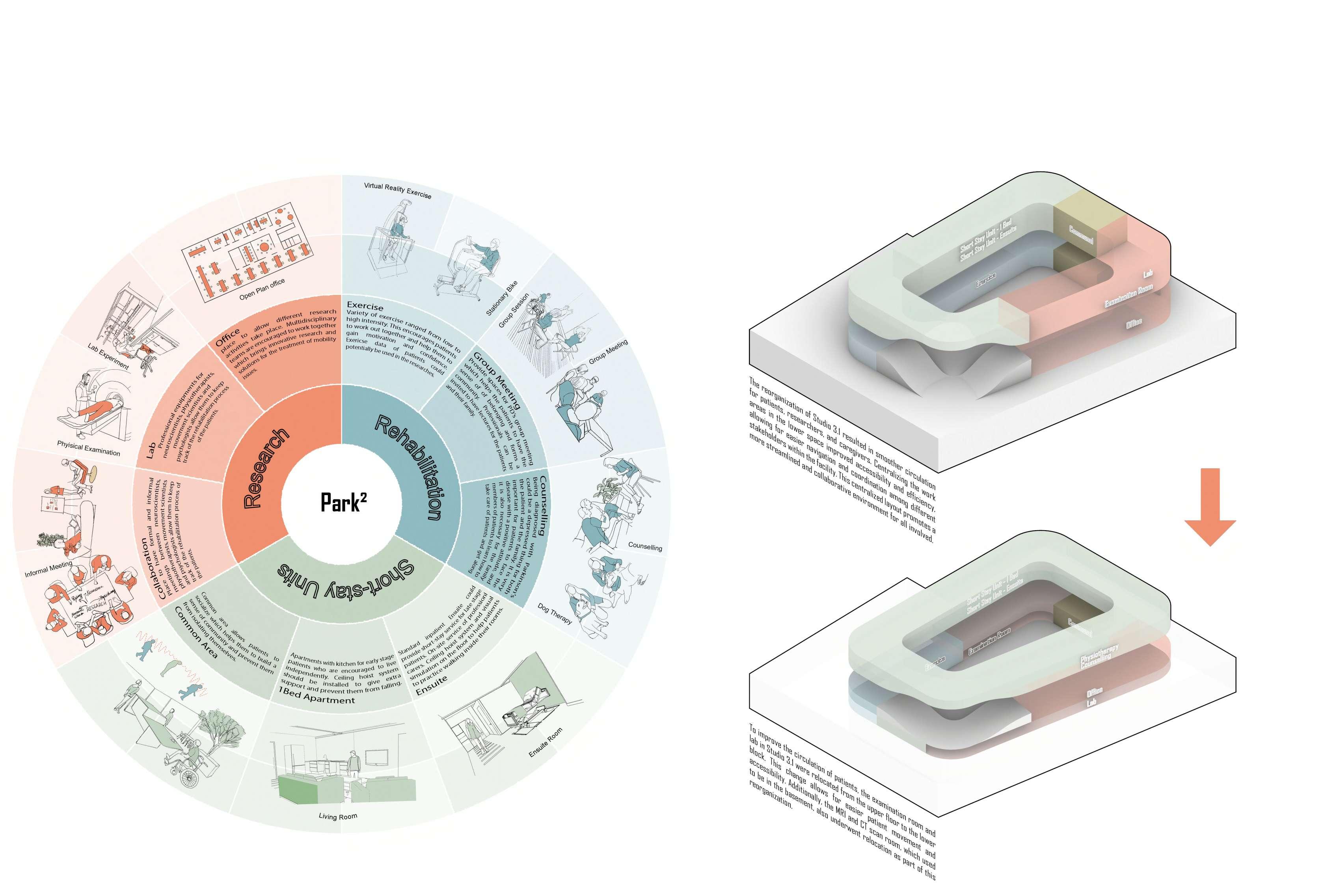

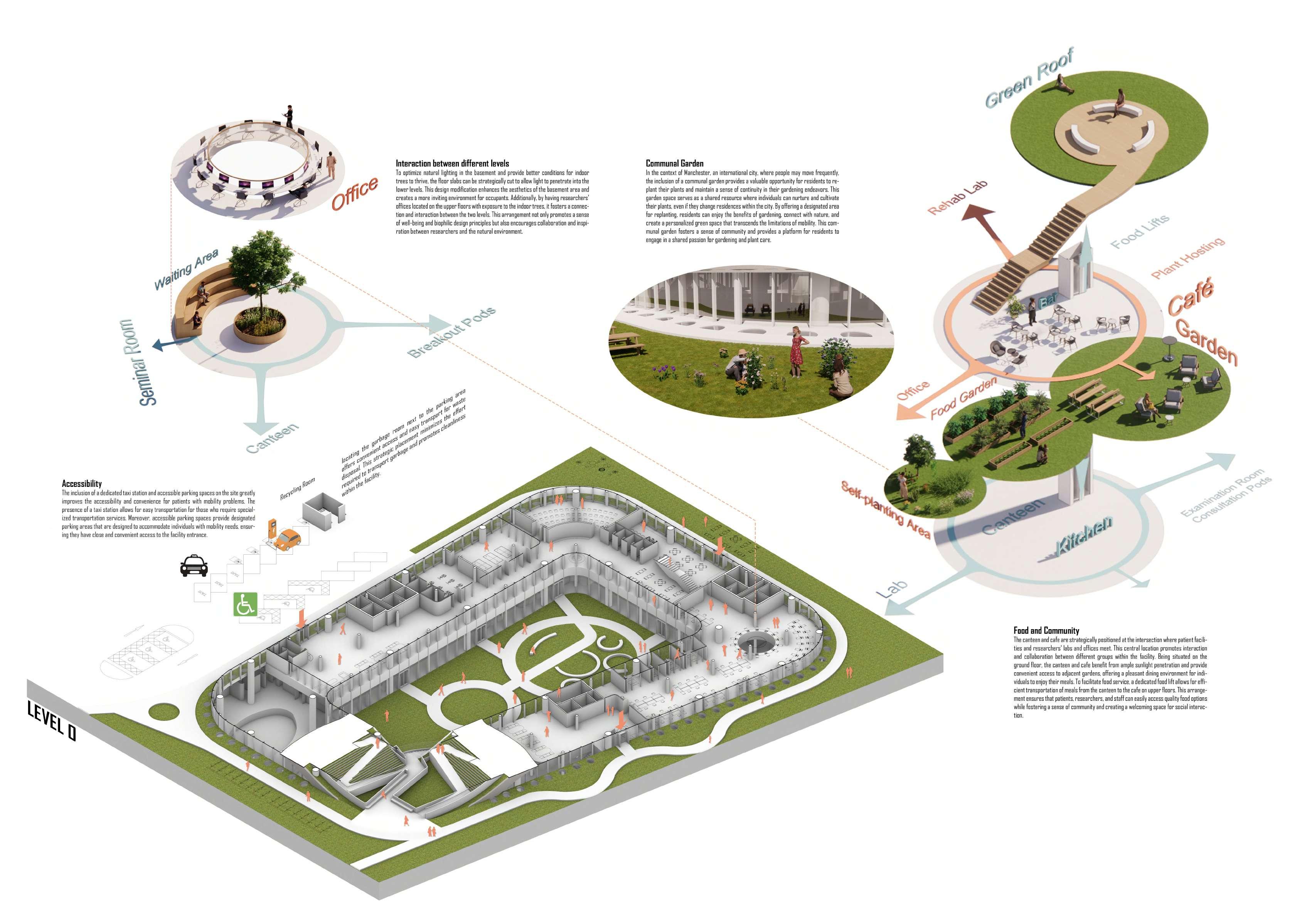

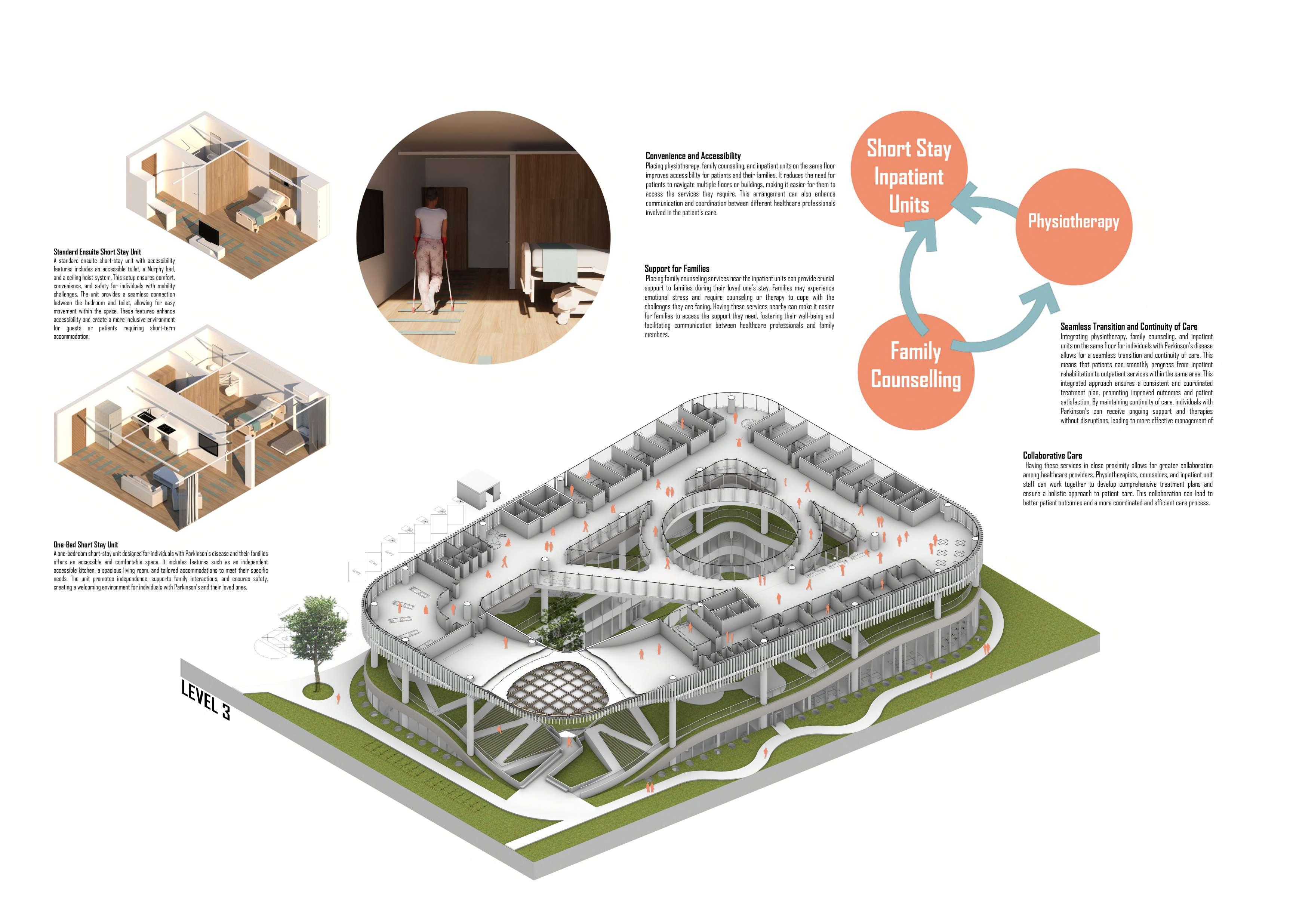
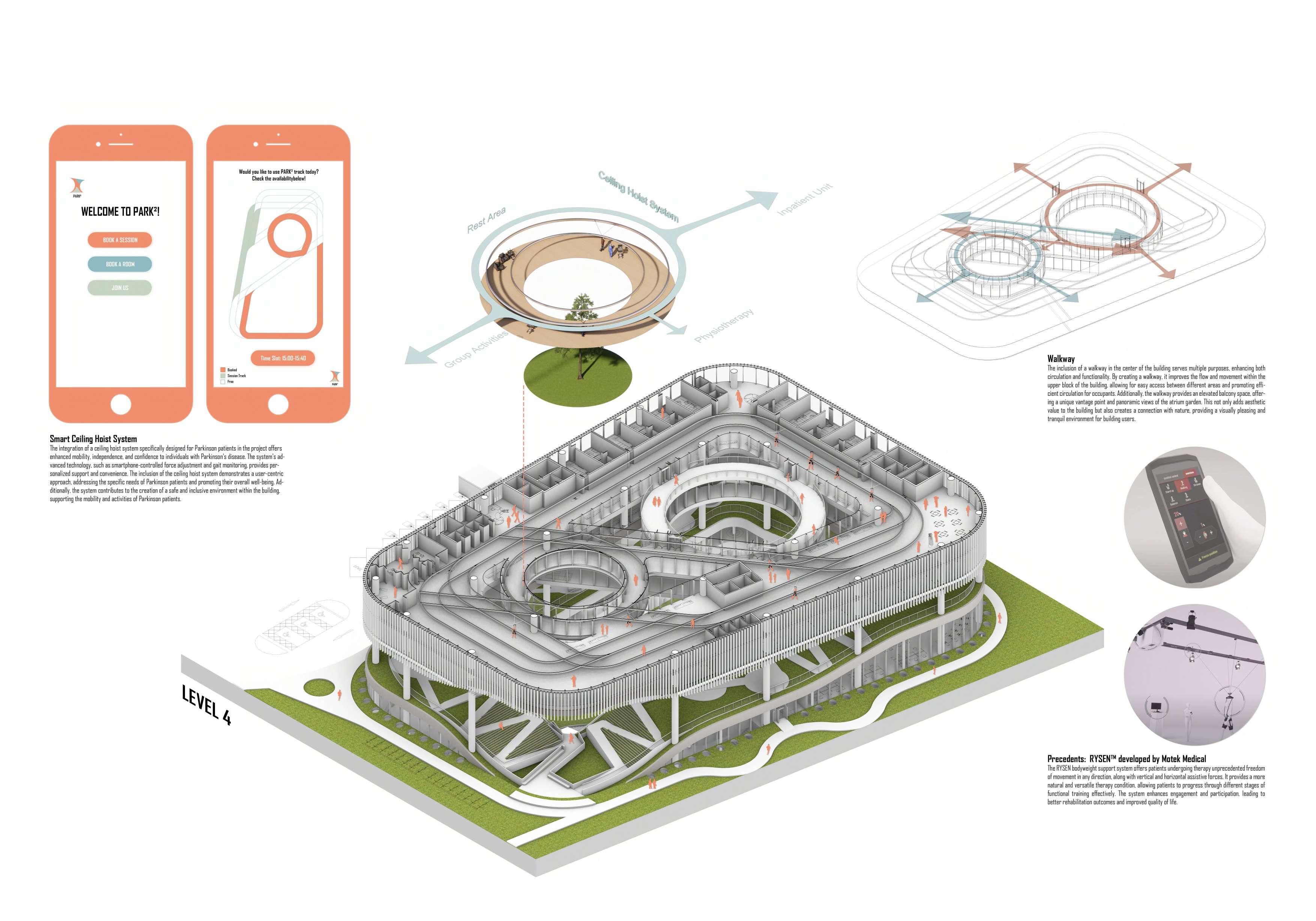








































Promoting Biophilic Design and Zero Carbon Futures: The project aligns with the atelier's position on "Emergent Biophilic Design" and "Zero Carbon Futures" by incorporating key elements and strategies. Biophilic design principles are integrated throughout the research and rehabilitation centre, with the inclusion of green spaces, natural materials, and ample daylight to create a connection with nature and enhance the well-being of individuals with Parkinson's. The design intervention also emphasizes sustainability through the implementation of technologies such as solar panels, energy-generating treadmills, and a hybrid timber structure, reducing the carbon footprint of the building and contributing to a zero-carbon future.

Interdisciplinary Collaboration and Human-Centered Design: The atelier's focus on interdisciplinary collaboration is realized through the integration of various fields, including physiotherapy, psychology, neuroscience, and movement science. This collaborative approach allows for a comprehensive understanding of Parkinson's disease and promotes innovative research and treatment solutions. Additionally, the project embodies human-centered design principles by prioritizing the needs, well-being, and empowerment of individuals with Parkinson's. The design intervention provides social spaces, short-term residential facilities, and dedicated rehabilitation spaces, creating a supportive environment that addresses both physical and emotional well-being.
Inclusivity and Community Engagement: The project emphasizes inclusivity by actively involving the Parkinson's community in the research process. By creating a space where individuals with Parkinson's can actively participate, their voices and experiences are valued and contribute to finding solutions for the disease. This inclusive approach fosters community engagement and empowerment, enhancing the relevance and impact of the research conducted. The design intervention also considers the needs of the local community and the wider MMU campus, creating a vibrant and inclusive environment for all.
Technological Advancements for Sustainability and Efficiency: The integration of advanced technologies enhances the sustainability and efficiency of the research and rehabilitation centre. Solar panels and energy-generating treadmills contribute to renewable energy generation, reducing reliance on traditional energy sources. The use of a hybrid timber structure promotes eco-friendly materials, while software systems enable real-time monitoring and control of building functions, optimizing resource utilization and energy management. These technological advancements align with the atelier's vision of a zero-carbon future and demonstrate the effective integration of technology in sustainable building design.